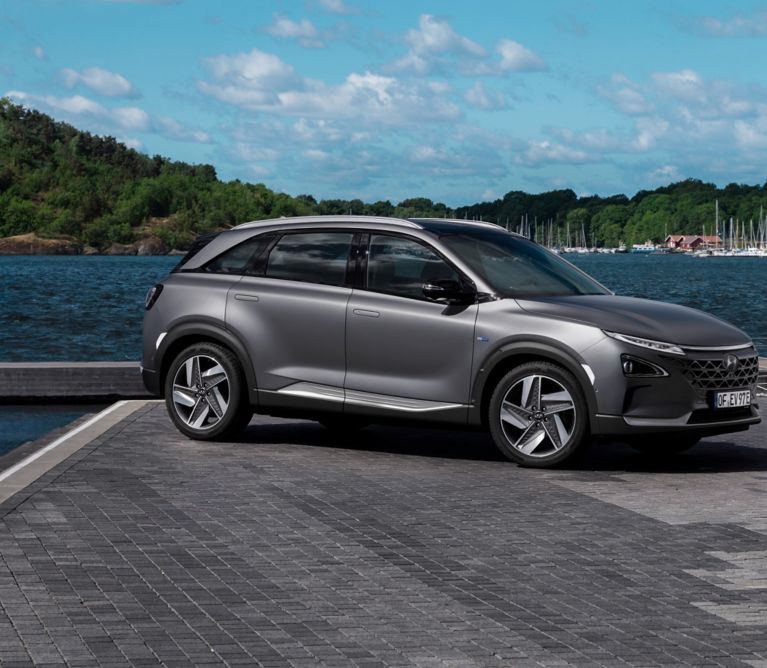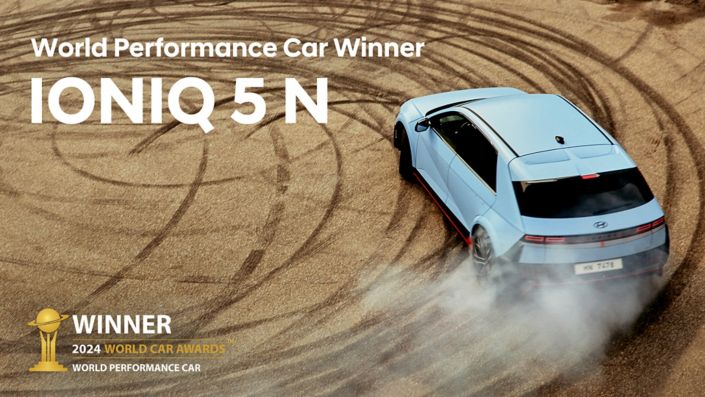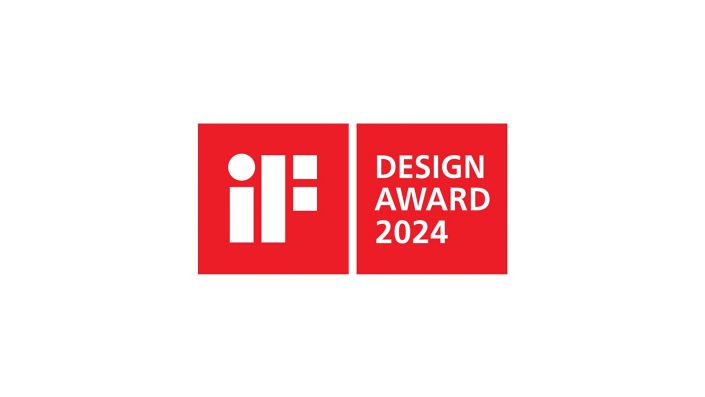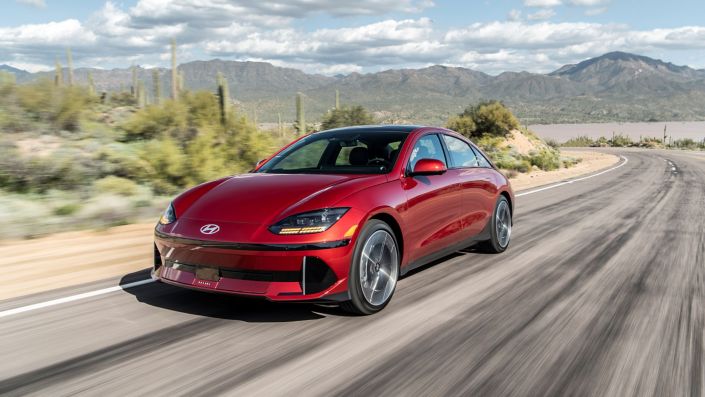- Editors of German car magazine “Auto Zeitung” award Hyundai Motor as "Most Innovative Brand"
- Jury recognizes Hyundai’s technology leadership and wide range of models with alternative powertrains
- Hyundai is the first brand to offer hybrid, plug-in hybrid, electric and fuel cell vehicles to its customers
Press material
-
Download
-
Images
Hyundai Motor has received another coveted award: for the renowned "Auto Trophy 2018", the editors of German car magazine Auto Zeitung chose Hyundai as "Most Innovative Brand".
The prestigious award underlines the brand's ambition to become a leader in future mobility and to offer a wide range of environmentally friendly vehicles.
The Korean brand builds everything from sporty compacts to plug-in hybrids, electric vehicles or the NEXO fuel cell car.
Hyundai is already leading in future mobility and still the only manufacturer to offer all major alternative powertrains in serial production. Our progressive spirit is also reflected in our global sustainability strategy to launch 18 new eco models by 2025, including eight hybrid, four plug-in hybrids, five electric vehicles and one fuel-cell electric vehicle. We are pleased about Auto Zeitung appreciating our strategy and success by naming us most innovative brand.
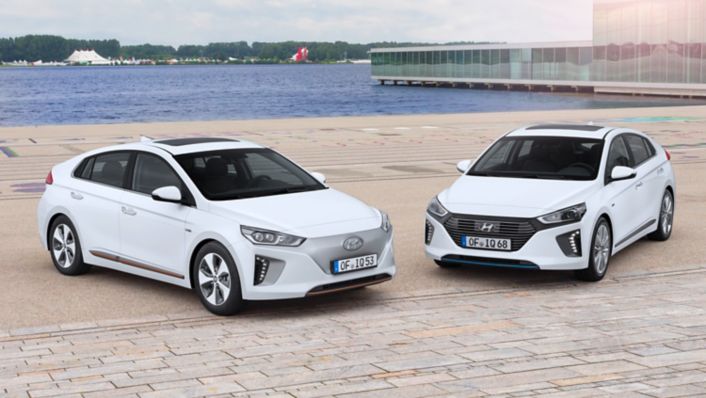
The Hyundai IONIQ, launched in 2016, is the world’s first car with three electrified powertrains in one body type - Hybrid, Plug-in and Electric – making eco mobility accessible for everyone. Earlier this year, Hyundai expanded its alternative powertrain line-up with the All-New Kona Electric – the world’s first fully-electric subcompact SUV.
Hyundai has been researching in the area of fuel cells since 1998 and has been a significant driver in developing this technology ever since. In 2013, Hyundai launched the world's first mass-produced fuel cell vehicle, the ix35 Fuel Cell. In 2018, Hyundai introduced NEXO, its second generation fuel cell electric vehicle entering serial production. Next to its impressive driving range of 666km (under WLTP testing), NEXO (hydrogen consumption in kg/ 100 km: city 0.77, out-of-town 0.87, combined 0.84) offers the most advanced technology on the market with autonomous driving capabilities, smart advanced driver assistance systems and strongest powertrains in the segment. In October 2018 Hyundai presented another milestone for its leadership in fuel cell technology with the Fuel Cell electric truck, to be launched in 2019.
By providing over 70 per cent of all fuel cell cars driving in Europe, Hyundai is already market leader in fuel cell technology. However, the company’s commitment to hydrogen-powered electric vehicles goes beyond development and sales. Hyundai is dedicated to support the expansion of hydrogen infrastructure as well as promoting fuel cell technology as a real alternative to internal combustion engines. This dedication is reflected in various partnerships, including for instance the Hydrogen Council, the Clean Energy Partnership (CEP), the Icelandic H2ME initiative, and as an associated partner of H2 Mobility.
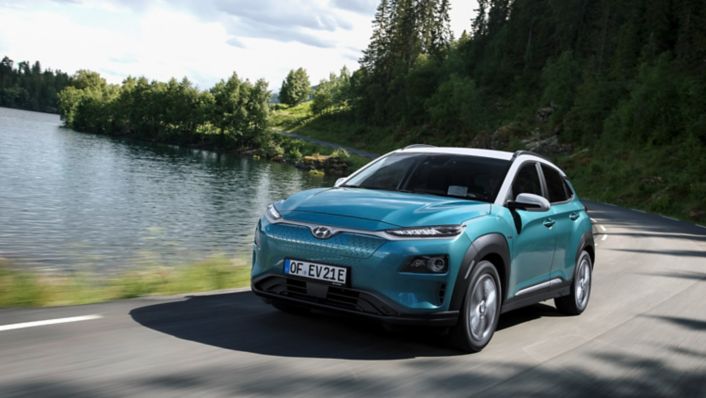
In June 2018, Hyundai Motor Group and AUDI AG announced they have entered into a multi-year patent cross-licensing agreement, covering a broad range of fuel cell electric vehicle (FCEV) components and technologies. Under the partnership, Hyundai and AUDI AG will make joint efforts in developing FCEVs, to lead the automotive industry to a more sustainable future.
During the ‘IAA Commercial Vehicles 2018’ show in Hanover, Hyundai has entered into a Memorandum of Understanding (MOU) with Swiss hydrogen company H2 Energy (H2E). Beginning in 2019 and over a five year period Hyundai and H2 Energy will provide 1,000 heavy-duty fuel cell electric trucks as well as an adequate supply chain for renewable hydrogen.
Consumption and emission data*
Hydrogen consumption in kg/ 100 km for Hyundai NEXO: urban 0.77, extra urban 0.87, combined 0.84; CO2 emission in g/ km combined: 0)
Electricity consumption in kWh/ 100 km for Hyundai Kona Electric: combined 14.3-13.9; CO2 emissions in g / km combined: 0)
Electricity consumption in kWh/ 100 km for Hyundai IONIQ Electric: combined 11.5; CO2 emissions in g / km combined: 0)
Fuel consumption in l/ 100 km combined for IONIQ Plug-in: 1.1; Electricity consumption in kWh/ 100 km combined: 10.3; CO2 emissions in g/ km combined: 26)
Fuel consumption in l/ 100 km for IONIQ Hybrid: urban 3.8, extra urban 4.5, combined 4.2; CO2 emissions in g/ km combined: 97)
*Under WLTP testing and converted back to NEDC.

